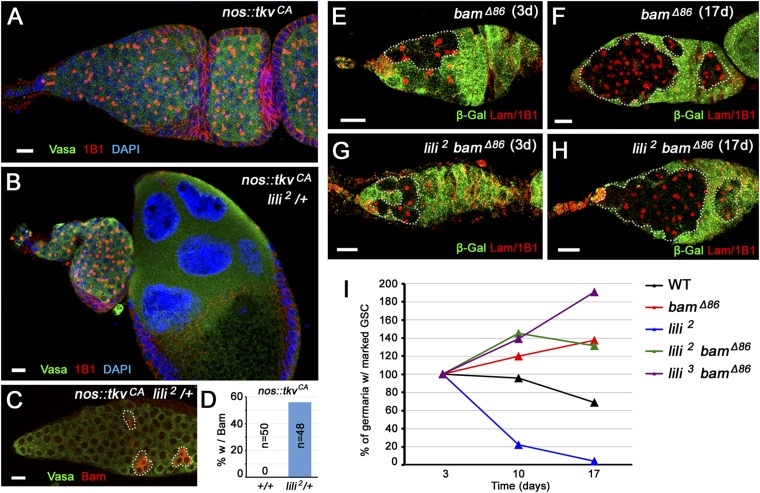Fig. 3.
lili dominantly suppresses hyperactivated BMP pathway. (A and B) Germaria from either a nos-Gal4vp16 UASp-tkv CA female (A) or a nos-Gal4vp16 UASp-tkv CA female heterozygous for lili (lili 2/+) (B) stained with anti-Vasa and anti-1B1 (A and B). (C and D) In nos-Gal4vp16 UASp-tkv CA females heterozygous for lili (lili2/+), induction of Bam expression (anti-Bam Ab; red) is detected in the tumorous germ line (anti-Vasa Ab; green): detection in germarium (C) and quantification (D). Dashed outlines mark germ-line cells expressing Bam. (E–H) Germaria containing homozygous bamΔ86 (E and F) or lili2 bamΔ86 (G and H) clonal GSCs at 3 and 17 d ACI stained with anti–β-gal (green) and anti-Lamin C/anti-1B1 (red). Dashed outlines mark clonal germ-line cells. (I) Percentage of germaria containing a homozygous clonal lili bamΔ86 double mutant GSC, lili2, or bamΔ86 single mutant GSC, or control clonal GSC at 3, 10, and 17 d ACI. Increased accumulation of bamΔ86 GSC clones was reported by Jin et al. (19), due to increased competitiveness for the niche compared with wild-type GSCs; lili bamΔ86 double mutant GSCs show a similar effect. (Scale bars: 10 μm.)

